Top Skills Required for an Aircraft Structures Technician

Aspiring to become an Aircraft Structures Technician? With the ever-growing aviation industry, it’s essential to have the top skills required to excel in this field. From technical proficiency to communication skills, the job of an Aircraft Structures Technician demands an array of abilities to ensure the safety and efficiency of aircraft.
We’ll take a closer look at the top skills that are essential for an Aircraft Structures Technician to have in today’s aviation industry. So, fasten your seatbelts and get ready to explore the must-have skills for this exciting career path!
1. Technical Skills
As an Aircraft Structures Technician, having great technical skills is crucial in ensuring the safety and reliability of aircraft. Technical skills are essential in handling complex machinery and equipment, performing precise measurements, and following strict industry regulations.
Here are some technical skills that are important for an Aircraft Structures Technician to possess:
Ability to read and interpret engineering blueprints, illustrations, and specifications to determine layouts, sequences of operations, identities, and relationships of parts.
Knowledge of sheet metal and fabrication techniques, including the operation of welding equipment, brazing equipment, centering tools, riveting tools, and other prescribed sheet metal and structure maintenance tools.
Familiarity with FAA maintenance bulletins and procedures, as well as aircraft manufacturer’s maintenance manuals.
Proficiency in using measurement tools such as micrometers, calipers, and gauges.
Strong problem-solving skills to identify and troubleshoot issues in aircraft structures and components.
Your technical skills are the engine that drives safety and reliability in aviation. From reading blueprints and operating specialized equipment to troubleshooting complex issues, you navigate the intricate world of aircraft maintenance with finesse. So let your skills take flight, and with a touch of wit, soar above the challenges, ensuring that every aircraft you touch is ready to conquer the skies with confidence.

2. Attention to Detail
Attention to detail is critical for Aircraft Structures Technicians in aviation as they work with complex machinery, components, and systems that require precise measurements and exact tolerances. A small mistake can have significant consequences, potentially leading to catastrophic failures in flight.
Here are some reasons why attention to detail is important for an Aircraft Structures Technician:
Ensuring safety: Precision and accuracy in aircraft maintenance and repair work are essential for maintaining the safety and airworthiness of the aircraft.
Compliance with regulations: Strict industry regulations require adherence to precise standards and tolerances, and any deviation can result in non-compliance.
Preventing costly errors: Mistakes in aircraft maintenance and repair work can be costly, both in terms of time and money.
Avoiding downtime: Aircraft downtime can have a significant impact on airlines and private operators, resulting in lost revenue and productivity.
Enhancing reliability: By paying close attention to detail, Aircraft Structures Technicians can ensure the reliability of aircraft and components, reducing the likelihood of failures in-flight.
In the world of aircraft structures, the devil is in the details, and as an Aircraft Structures Technician, you’re the master of devilish precision. With your unwavering attention to detail, you’re the guardian angel of safety, the gatekeeper of reliability, and the savior of compliance. So, keep those errors grounded, bid farewell to downtime, and let your meticulousness shine as you elevate the skies with your witty and flawlessly crafted aircraft expertise.

3. Physical Dexterity
Physical dexterity refers to the ability to perform precise movements with ease and coordination. For an Aircraft Structures Technician, physical dexterity is crucial as the job requires handling complex and delicate equipment. A high level of physical dexterity ensures safety, efficiency, and accuracy in performing maintenance and repair tasks on aircraft structures.
The physical dexterity required for an Aircraft Structures Technician includes:
Fine motor skills for manipulating small parts and tools.
Hand-eye coordination for precise measurements and alignments.
Agility and flexibility for working in confined spaces.
Strength and endurance for lifting heavy equipment and working for long hours.
Manual dexterity for using a variety of hand tools and power tools.
As an Aircraft Structures Technician, you’re not just a master of the skies, but also a master of agility and dexterity. With your nimble fingers and graceful movements, you’re like a dance partner, guiding the aircraft with ease and grace. But make no mistake, the stakes are high, and a lack of physical dexterity can send you and your aircraft crashing down. So keep those fingers flying, those tools twirling, and those aircraft soaring as you dance your way to aviation perfection.
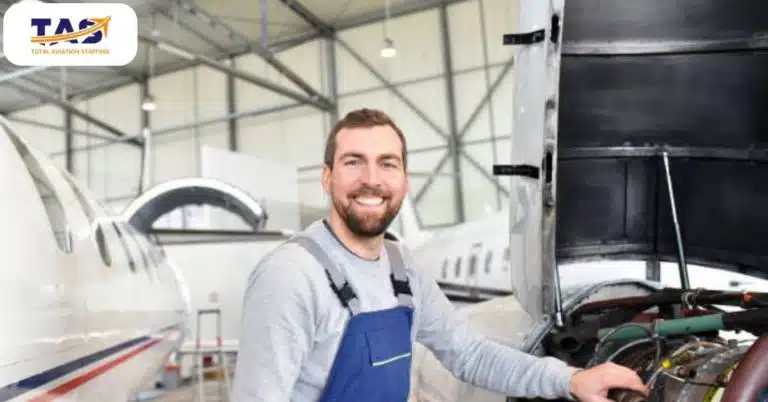
4. Analytical Thinking
Analytical thinking is the ability to gather and analyze information, identify patterns, and draw conclusions. As an Aircraft Structures Technician in aviation, having analytical thinking skills is critical as it enables you to troubleshoot complex aircraft structural problems and make informed decisions based on the data gathered.
Analytical thinking is used in various tasks, such as interpreting technical drawings, determining the root cause of a problem, and identifying the most efficient repair solution. In addition, analytical thinking is essential in maintaining safety and adherence to industry regulations, which are vital in the aviation industry.
Where precision meets innovation, analytical thinking is your trusted co-pilot as an Aircraft Structures Technician. Armed with your sharp mind and keen eye, you navigate the complex skies of aircraft maintenance with finesse. So buckle up, embrace your analytical prowess, and let your wit soar as you ensure the smooth and safe flight of every aircraft you touch. After all, in the realm of aviation, there’s no room for guesswork when you have analytical thinking as your trusty wingman.
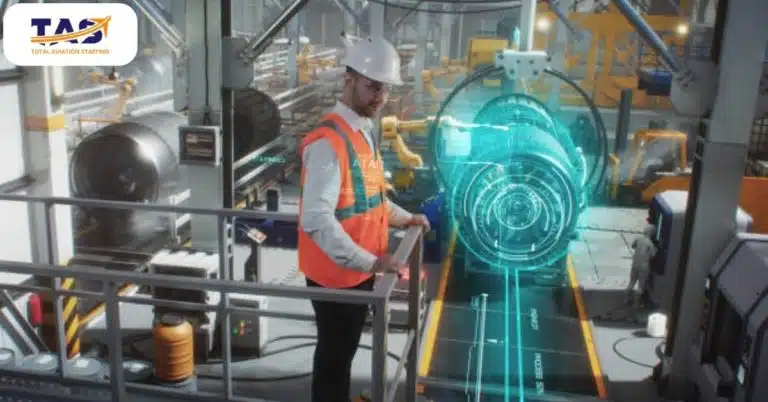
5. Communication Skills
Effective communication is vital in aviation maintenance as it involves working with a team, providing clear instructions, and ensuring safety protocols. An Aircraft Structures Technician’s job requires communicating with various personnel, such as pilots, engineers, mechanics, and managers.
Importance of Communication Skills:
Communicating technical information to different stakeholders
Collaborating with a team to ensure aircraft maintenance is performed safely and efficiently
Documenting maintenance work and producing accurate reports
Conducting effective briefings with other team members to identify problems and resolve them efficiently
Interacting with customers and clients to provide excellent customer service.
Negative consequences of poor communication:
Delays in maintenance procedures leading to flight delays or cancellations
Misinterpretation of instructions resulting in errors and unsafe conditions
Miscommunication among team members results in accidents or incidents
Loss of customers and damage to the company’s reputation.
Always remember that you’re not just a mechanic, but a wordsmith, weaving technical information and clear instructions into a symphony of efficient maintenance. Whether you’re briefing your team on the latest updates, documenting maintenance work, or charming customers with your wit and charm, effective communication is your secret weapon to keep the skies friendly and safe. So let your words take flight, and with a touch of wit, ensure that every aircraft you touch soars high with clear communication and excellent customer service.
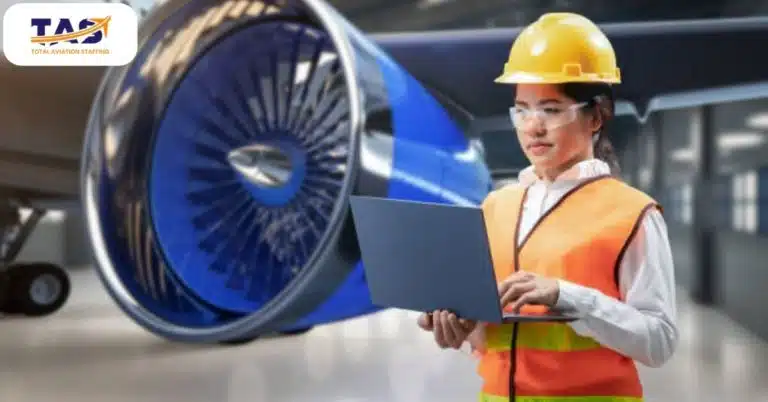
6. Safety Mindset
Aircraft Structures Technicians play a vital role in ensuring the safety of aircraft, passengers, and crew. They are responsible for inspecting, repairing, and maintaining the structural components of an aircraft to ensure that it is safe to operate. Therefore, they need to have a great safety mindset.
Importance of a great safety mindset:
It helps them to identify potential hazards and take necessary precautions to prevent accidents.
It allows them to follow safety procedures and protocols to avoid accidents and ensure the safety of everyone involved.
It enables them to identify and report any safety concerns or issues to the relevant authorities.
It helps them to maintain a safe work environment and prevent injuries to themselves and their colleagues.
It shows their commitment to safety and their willingness to prioritize safety over everything else.
Safety isn’t just a mindset—it’s an unwavering devotion that propels Aircraft Structures Technicians to greatness. With every rivet and inspection, you stand as a guardian of the skies, ensuring the safety of aircraft, passengers, and crew. Your unwavering commitment and professionalism shine through, leaving no room for compromise. So let your safety mindset soar high, for it is the wings that carry you to new heights of excellence and trust in the aviation industry.
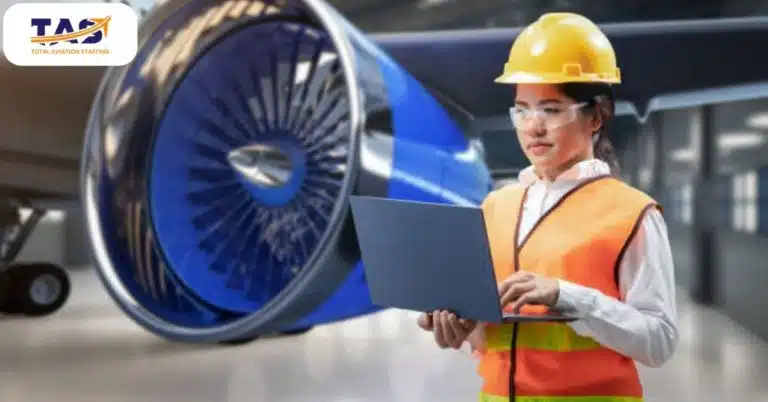
7. Adaptability
Adaptability is crucial for an Aircraft Structures Technician due to the constantly changing aviation industry. The ability to adapt to new technologies, procedures, and protocols can mean the difference between success and failure in the aviation field.
With new aircraft and technologies emerging, an Aircraft Structures Technician must be flexible and able to adjust to changes quickly. Additionally, an Aircraft Structures Technician must be able to work well under pressure and remain calm during stressful situations.
Being adaptable allows Aircraft Structures Technicians to stay ahead of the curve, continuously improve their skills and knowledge, and ultimately provide the best service possible to their clients.

8. Organization and Time Management
As an Aircraft Structures Technician, you will be responsible for maintaining and repairing critical components of an aircraft. To ensure that all tasks are completed accurately and efficiently, it is important to have strong organization and time management skills. These skills are especially important in the fast-paced aviation industry, where time is of the essence and mistakes can have serious consequences.
Some key reasons why organization and time management skills are important include:
Completing tasks efficiently: There are many tasks to be completed in a limited amount of time, so it is essential to be organized and manage your time effectively to complete all tasks efficiently and with accuracy.
Prioritizing tasks: In aviation, there are often unforeseen issues that arise, which means that priorities can change quickly. Good organization and time management skills enable technicians to adapt quickly to changing priorities and ensure that the most important tasks are completed first.
Maintaining safety standards: Aircraft Structures Technicians must adhere to strict safety standards and regulations. Effective time management and organization skills help ensure that safety procedures are followed and that all necessary checks and inspections are carried out on time.
Reducing downtime: Aircraft downtime can be costly for airlines, and effective organization and time management skills can help reduce downtime by ensuring that all maintenance tasks are completed on schedule.
Good organization and time management skills are like a trusty GPS that guides Aircraft Structures Technicians to their destination of efficiency and excellence. With these skills, you can navigate the complex terrain of maintenance tasks with ease, ensuring that every nut and bolt is in its place, and every safety standard is upheld. So buckle up, and let your organizational and time management skills take control as you soar toward success in the aviation industry. Remember, time waits for no technician!
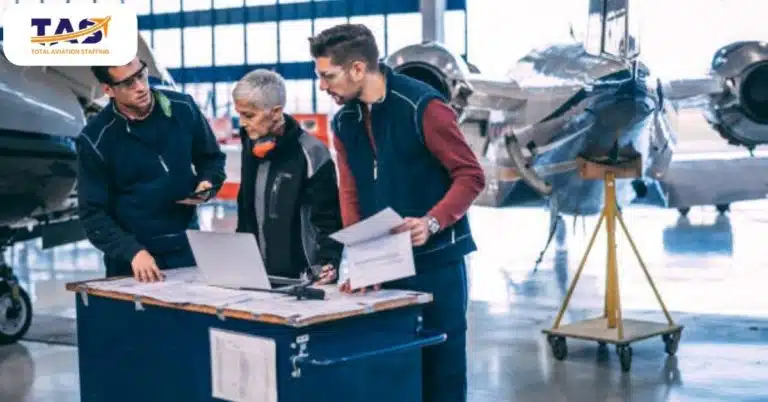
Takeaways
Being an Aircraft Structures Technician requires a diverse set of skills and qualities that go beyond technical knowledge. From physical dexterity and analytical thinking to communication and safety mindset, these skills are essential for success in this dynamic field. By developing and honing these skills, Aircraft Structures Technicians can not only excel in their career but also contribute to the safety and efficiency of the aviation industry as a whole. So, if you’re interested in pursuing a career as an Aircraft Structures Technician, remember to focus not only on technical skills but also on developing these key competencies.
Ready to take your career in aviation to new heights? Visit Total Aviation Staffing today and search for the perfect job for you. Our platform connects you with top aviation companies across the United States, from MROs to OEMs, airlines, aerospace, and charter companies. Don’t just search for a job, let us help you build your resume, apply to openings, and land your dream full-time job. Start your journey towards success in the aviation industry by visiting our website and taking the first step today!
